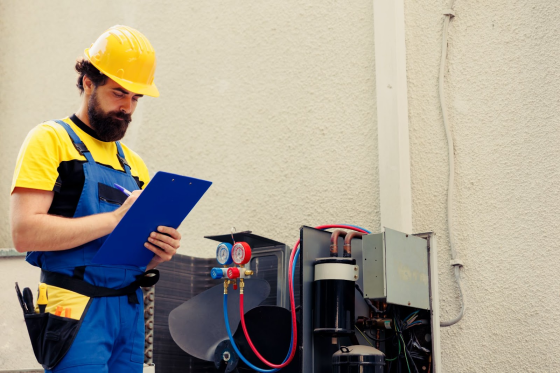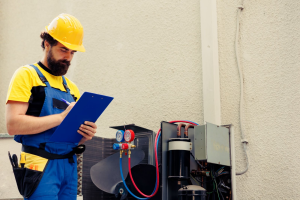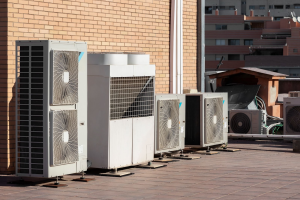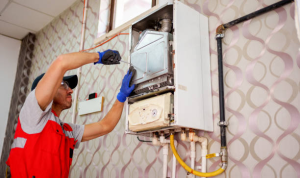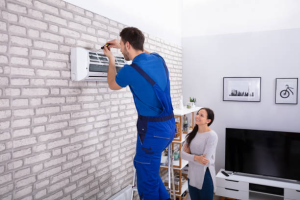Heat pumps have become an increasingly popular choice in Bristol homes thanks to their energy efficiency and low carbon footprint. They provide heating in winter and cooling in summer, offering year-round comfort with less reliance on fossil fuels. Like any heating system, they require regular care to perform at their best. Homeowners often ask about heat pump service near me, and understanding what this involves helps ensure a system stays reliable, efficient, and long lasting.
This guide, developed with insights from North Bristol Cooling & Heating LTD, explains the importance of maintenance, the key steps in a professional service, and when to arrange it for the best results.
Why Heat Pump Maintenance Matters
A heat pump is a complex system with moving parts, refrigerant cycles, and controls that work continuously to provide comfort. Without servicing, efficiency declines, running costs increase, and the risk of breakdown rises. Routine maintenance prevents small issues from becoming expensive repairs and helps extend the system’s lifespan.
Neglecting maintenance can lead to common issues such as:
Reduced airflow due to clogged filters
Refrigerant leaks that lower efficiency
Compressor strain leading to failure
Inaccurate thermostat readings affecting comfort levels
Regular attention ensures the unit operates as designed, protecting both performance and safety.
Typical Service Tasks in Bristol Homes
During a professional service, engineers follow a structured process to check, test, and optimise the system. Homeowners can expect the following key steps:
Cleaning and Inspection
Dust and debris are removed from coils, filters, and fans. Blockages restrict airflow, forcing the system to work harder. A clean unit consumes less energy and provides more consistent heating or cooling.
Refrigerant Level Checks
The refrigerant is essential for heat transfer. Low levels reduce efficiency and can damage the compressor. Engineers use specialist gauges to check pressure and top up where required.
Electrical Component Testing
Wiring, connections, and capacitors are inspected for wear or corrosion. Faulty components can cause irregular operation or safety risks.
Thermostat Calibration
Controls are adjusted to ensure accurate temperature readings. An incorrectly calibrated thermostat can result in uneven heating or higher bills.
System Performance Testing
The overall efficiency of the system is measured. Engineers will check airflow rates, output temperatures, and cycle times to confirm the unit is delivering the expected performance.
Drainage System Cleaning
Condensate drains can become clogged with dirt or algae. Clearing them prevents leaks and protects surrounding structures from water damage.
When to Schedule Heat Pump Servicing
Timing matters when it comes to maintenance. Most systems benefit from at least one service per year. For homes in Bristol, the ideal schedule is:
Spring: Ensures the system is ready for summer cooling.
Autumn: Prepares the unit for winter heating demand.
This approach reduces the chance of unexpected breakdowns during peak usage periods. Older systems or those in larger properties may require more frequent checks.
The table below shows the difference between regular and irregular servicing:
| Service Frequency | System Efficiency | Risk of Breakdown | Average Lifespan |
|---|---|---|---|
| Annual Service | 90%+ maintained | Low | 15–20 years |
| Irregular Service | 70–80% declining | High | 8–12 years |
Regular maintenance provides clear long-term benefits in both performance and system longevity.
Signs Your Heat Pump Needs Immediate Attention
While annual servicing is essential, certain warning signs indicate that a system should be checked sooner:
Unusual noises such as grinding or rattling
Weak airflow from vents
Uneven heating across rooms
Unexpected spikes in energy bills
Persistent fault codes on the control panel
Addressing these issues promptly prevents them from escalating into larger problems.
The Role of Professional Engineers
Although homeowners can complete basic tasks such as cleaning or replacing filters, professional servicing is necessary to handle technical aspects. Engineers from North Bristol Cooling & Heating LTD are trained to work with refrigerants, electrical systems, and diagnostic tools. They also ensure all work complies with UK safety standards and manufacturer requirements.
Professional input provides peace of mind, knowing the system is both efficient and safe. It also protects warranty cover, as many manufacturers require annual servicing for guarantees to remain valid.
Energy Efficiency and Environmental Benefits
A well-maintained heat pump is not only cheaper to run but also more sustainable. By reducing wasted energy, homeowners lower their carbon footprint while enjoying greater comfort. This aligns with Bristol’s wider goals of reducing emissions and promoting greener homes.
Modern units are often compatible with smart controls, and during a service, engineers can advise on integration options. Smart thermostats help reduce energy use by allowing precise control and better scheduling.
What to Expect from a Service Provider
Choosing the right service provider ensures reliability and transparency. A professional company should provide:
Clear explanation of service tasks
Transparent pricing without hidden costs
Detailed report on system condition
Recommendations for improvements or upgrades
North Bristol Cooling & Heating LTD takes this structured approach, ensuring homeowners understand every step of the process and what it means for their comfort and safety.
Long-Term Maintenance Planning
Maintenance should be viewed as part of a long-term property care strategy. Rather than waiting for faults to occur, regular servicing builds confidence in the system’s reliability.
Some households in Bristol opt for service plans that spread costs across the year, ensuring that maintenance is never overlooked. This can be especially beneficial for larger homes or properties with higher heating demands.
The Cost of Neglect
The consequences of skipping maintenance are both financial and practical. A system that runs inefficiently consumes more electricity, driving up bills. Repairs for neglected units are often more expensive than the cost of an annual service. In extreme cases, complete system replacement may be needed years earlier than expected.
Consider the comparison below:
| Factor | Maintained System | Neglected System |
|---|---|---|
| Energy Bills | Lower, predictable | Higher, rising |
| Repair Costs | Minimal | Frequent, costly |
| Comfort Levels | Consistent | Uneven, unreliable |
| System Lifespan | 15–20 years | 8–12 years |
This highlights why timely servicing is a smart investment.
Conclusion
Heat pumps are a reliable and efficient choice for Bristol homes, but only if they are properly maintained. Annual servicing protects performance, lowers energy costs, and extends system life. From cleaning coils to checking refrigerant levels, professional engineers deliver the expertise required to keep these systems operating safely.
For expert servicing tailored to Bristol properties, contact North Bristol Cooling & Heating LTD. Scheduling regular maintenance now ensures comfort, efficiency, and peace of mind for years to come.
Frequently Asked Questions
Most heat pumps should be serviced at least once a year. For systems used heavily for both heating and cooling, some manufacturers recommend servicing every six months to ensure maximum efficiency and reliability.
Skipping maintenance can lead to higher energy bills, reduced system efficiency, and a shorter lifespan. Issues like clogged filters or refrigerant leaks may also cause breakdowns that are more expensive to repair than a routine service.
Homeowners can complete simple tasks such as cleaning or replacing air filters and keeping the outdoor unit free from debris. However, checks on refrigerant levels, electrical components, and overall system performance must be carried out by a professional engineer.
A typical maintenance visit lasts between one and two hours, depending on the size and condition of the system. More complex issues or older units may take longer to inspect and optimise.
Most manufacturers require regular servicing by a qualified engineer to keep the warranty valid. Missing annual services may void coverage, leaving the homeowner responsible for repair or replacement costs.

